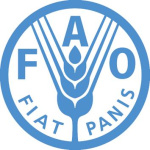- Settore: Agriculture
- Number of terms: 87409
- Number of blossaries: 0
- Company Profile:
Established in October 1945 with the objective of eliminating hunger and improving nutrition and standards of living by increasing agricultural productivity, FAO coordinates the efforts of governments and technical agencies in programs for developing agriculture, forestry, fisheries, and land and ...
A group of high-molecular-weight amorphous materials, comprising polymers of phenylpropanoid compounds, giving strength to certain tissues. Wood is composed of lignified xylem cells (about 15 to 30% by weight).
Industry:Biotechnology
A class of potentially interbreeding individuals that are reproductively isolated from other such groups having many characteristics in common. A somewhat arbitrary and sometimes blurred classification; but still quite useful in many situations.
Industry:Biotechnology
Stage in meiosis immediately preceding synapsis, in which the chromosomes appear as single, fine, threadlike structures (but they are really double because DNA replication has already taken place).
Industry:Biotechnology
A substance that promotes a chemical reaction by lowering the activation energy of a chemical reaction, without itself undergoing any permanent chemical change. The process is catalysis.
Industry:Biotechnology
The sub-cellular structure that contains both RNA and protein molecules and mediates the translation of mRNA into protein. Ribosomes comprise large and small sub-units. (<i>ribo</i> is from RNA + Gr. <i>soma</i>, body)
Industry:Biotechnology
Antibody-binding domains in which the two chains are produced by a gene and linked by a short peptide.
Industry:Biotechnology
The multiplication of plants by numerous types of vegetative material; an ancient practice dating from the dawn of agriculture, carried out in a nursery or directly in the field (vegetative propagation), and now in <i>in vitro</i> culture (micropropagation).
Industry:Biotechnology
A microbial or plant cell from which most of the cell wall has been removed, usually by enzymic treatment. Strictly, in a spheroplast, some of the wall remains, while in a protoplast the wall has been completely removed. In practice, the two words are often used interchangeably.
Industry:Biotechnology
The temperature at which a double-stranded DNA or RNA molecule denatures into separate single strands. The T<sub>m</sub> is characteristic of each DNA species and gives an indication of its base composition. DNAs rich in G:C base pairs are more resistant to thermal denaturation than A:T rich DNA since three hydrogen bonds are formed between G and C, but only two between A and T.
Industry:Biotechnology
